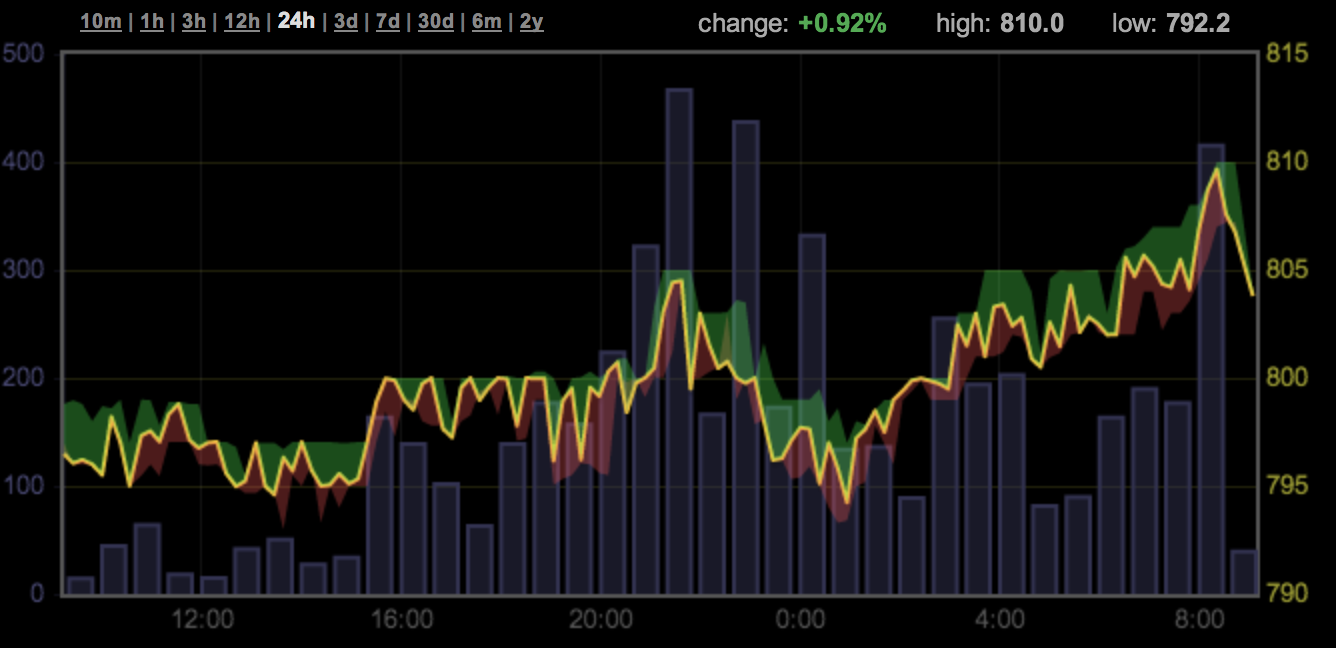
Russian Prosecutor's Office: BTC-e Investigation Report was a Hoax
, one of the largest bitcoin exchanges on the market, was rocked following an announcement published on the website of the Prosecutor’s Office of the Volgograd region on Monday. The statement claimed BTC-e was “under investigation” by the office and it quickly generated plenty of fear, uncertainty and doubt (FUD).
However, it now seems fear mongering was the sole goal of the statement, which was apparently fake. The prosecutor’s office has issued another statement, saying its website had been hacked and the initial announcement was posted by hackers.
Very good timing
This is not the first time Russian government institutions have been piggybacked to disseminate FUD. Last month a number of sites and forums published a set of amendments put before Russian lawmakers, wrongly implying that Russia could move to ban digital currencies altogether. Last week the Bank of Russia issued a statement saying that the issuance of alternative currencies in the Russian Federation is prohibited.
In both cases the statements were misinterpreted in some circles of the bitcoin community, either through ignorance or intentionally. In fact, the proposed amendments and the latest Bank of Russia statements did not bring anything new, they merely reiterated existing laws. However, they did generate plenty of concerns.
The price of bitcoin on BTC-e showed a correction of about $10 last night when the news came to light, but it has since rebounded and is currently trading just above the $800 mark.

BTC-e was right not to be concerned
Shortly after the 'hoax' was published at the Prosecutor’s Office of the Volgograd website, BTC-e moved to reassure investors, saying that it was not concerned by the statement, as the exchange is not headquartered in Russia and does not have any offices in the country, nor does it work with Russian banks. In other words, even if there was an investigation, Russian prosecutors would have a tough time proving that they have jurisdiction over the matter.
BTC-e told CoinDesk on Monday that it was not worried by any potential actions by Russian authorities.
Anonymity
Although from its Google search description, BTC-e appears to be headquartered in Bulgaria, it uses Czech banks and the managing company is in fact based in Cyprus. Its founders are not Russian citizens and they prefer to remain anonymous, although they revealed their first names recently.
So why don’t BTC-e founders Aleksey and Alexander simply reveal their identities and put an end to speculation? They insist they are running a legitimate operation and at the moment it seems that anonymity is hurting their cause rather than helping it.
There might be a down-to-earth explanation though, but we can only speculate. It is one thing for a couple of young coders to make a heap of cash in the West, but in some parts of the world going public could simply paint a big bullseye on them. Organized crime syndicates are known to target (and recruit) coders and hackers in many Eastern European countries, including Russia and Bulgaria.
For example, the Bulgarian “Mutra” has a tradition of doing just that. The country has the unflattering distinction of being the world leader in ATM skimming devices and it has plenty of cyber gangs willing to offer their services to the highest bidder – and they usually go after foreign targets. What’s more, most hacking charges simply don’t stick and authorities have a hard time prosecuting cyber criminals.
With that in mind, it is not easy to blame the BTC-e founders for wishing to keep their names out of the news.
CoinDesk has contacted the Prosecutor’s Office of the Volgograd, but is yet to receive a response.
DISCLOSURE
The leader in news and information on cryptocurrency, digital assets and the future of money, CoinDesk is a media outlet that strives for the highest journalistic standards and abides by a strict set of editorial policies. CoinDesk is an independent operating subsidiary of Digital Currency Group, which invests in cryptocurrencies and blockchain startups. As part of their compensation, certain CoinDesk employees, including editorial employees, may receive exposure to DCG equity in the form of stock appreciation rights, which vest over a multi-year period. CoinDesk journalists are not allowed to purchase stock outright in DCG.


